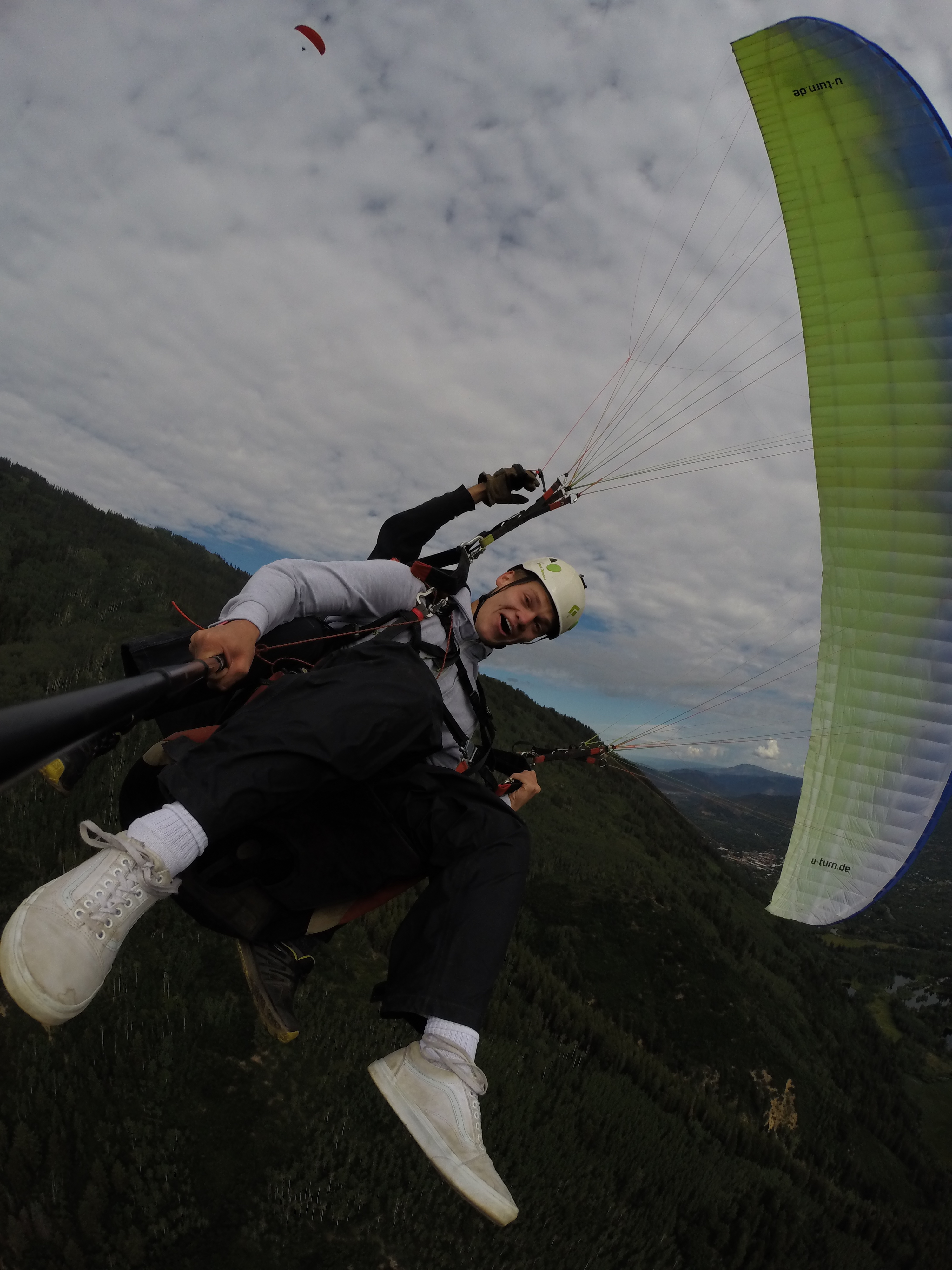 After a day at the spa we went to Courgné, Italy where my favorite restaurant is located and they were closed-wah wah wah! Danno was disappointed but you can't really go wrong with Italian food:)! So we met up with our friend Flávio who lives there and owns the paragliding business.
After a day at the spa we went to Courgné, Italy where my favorite restaurant is located and they were closed-wah wah wah! Danno was disappointed but you can't really go wrong with Italian food:)! So we met up with our friend Flávio who lives there and owns the paragliding business.
Flávio led us to a parking lot to sleep and park our van! When we woke up 2/4/16 we were in front of a cafe where we had cappuccinos and homemade cakes for brekky! The owner already knew we were friends of Flávio and in excellent English let us know Flávio would be back later that morning! So we hung out in our van enjoying the sunshine when the owner came back and introduced us to an ex pat from Michigan who now lives in Italy with two beautiful girls. Both of which we met and the older sister Elizabeth;) spent time with us and talked in English about the history of the area and buildings where she lived and where we were parked. Her grandparents lived during Mussolini and the German invasion! So interesting to get the different perspectives! Wow! 
So eventually Flávio came back for us and we went to the paragliding take off and had a beautiful flight above Courgné! So fun to see places from the open sky!
The evening we went with Flávio and rita to Ivrea to celebrate Carnival and the Battle of the Oranges similar to the week long Mardi Gras except they have different "flags" that represent the people of the area and the history.
The Battle of the Oranges is a festival in the Northern Italian city of Ivrea, which includes a tradition of throwing of oranges between organized groups. It is the largest food fight in Italy.
The festival's origins are somewhat unclear. A popular account has it that it commemorates the city's defiance against the city's tyrant, who is either a member of the Ranieri family or a conflation of the 12th-century Ranieri di Biandrate and the 13th-century Marquis William VII of Montferrat. This tyrant attempted to rape a young commoner (often specified as a miller's daughter) on the eve of her wedding, supposedly exercising the droit du seigneur,[(Droit du seigneur) French pronunciation: [dʁwa dy sɛɲœʁ]), also known as jus primae noctis (/ʒʌs ˈpraɪmiː ˈnɒktᵻs/; Latin pronunciation: [ju:s ˈpri:mae̯ 'nɔktɪs]), refers to a supposed legal right in medieval Europe, and elsewhere, allowing feudal lords to have sexual relations with subordinate women on their wedding night. There is no evidence of the right being exercised in medieval Europe, and existing references to it are from later time periods. His plan backfired when the young woman instead decapitated the tyrant, after which the populace stormed and burned the palace. Each year, a young girl is chosen to play the part of Violetta, the defiant young woman.
Every year the citizens remember their liberation with the Battle of the Oranges where teams of "Aranceri" (orange handlers) on foot throw oranges (representing ancient weapons and stones) against Aranceri riding in carts (representing tyrant's ranks). During the 19th-century French occupation of Italy the Carnival of Ivrea was modified to add representatives of the French army. Another adaptation of the story has the oranges used to symbolize the removed testicles of the tyrant.
Carnaval Ivrea from Mariposa Productions on Vimeo.








